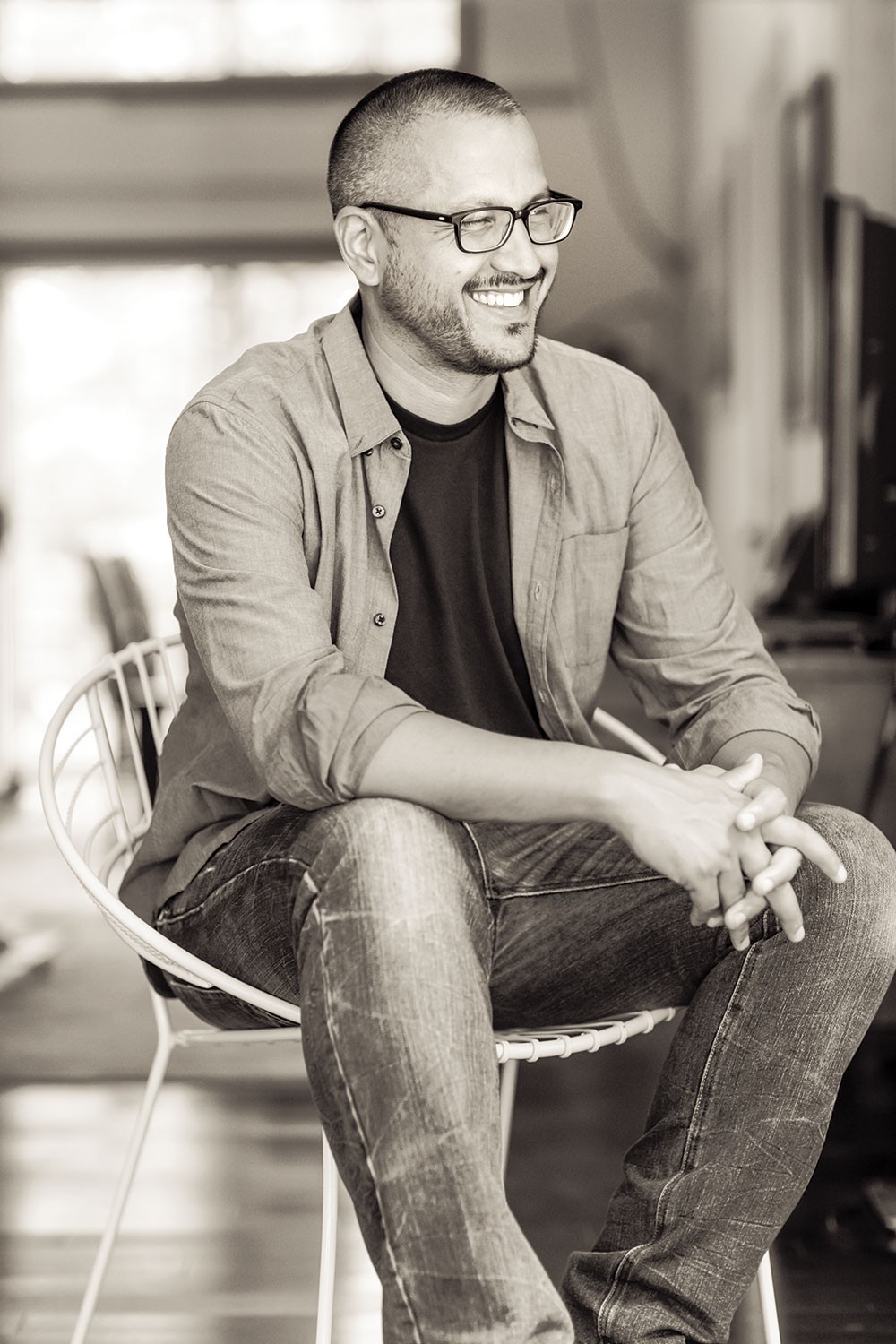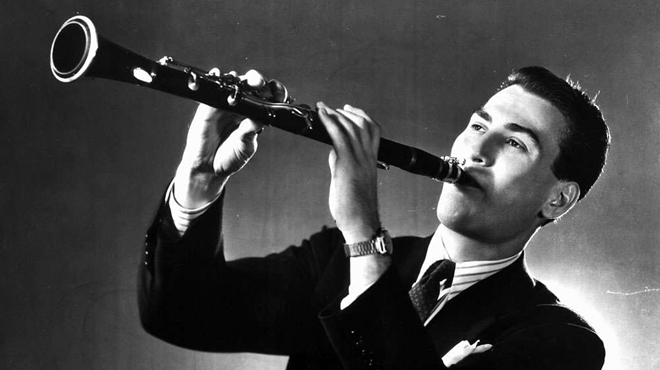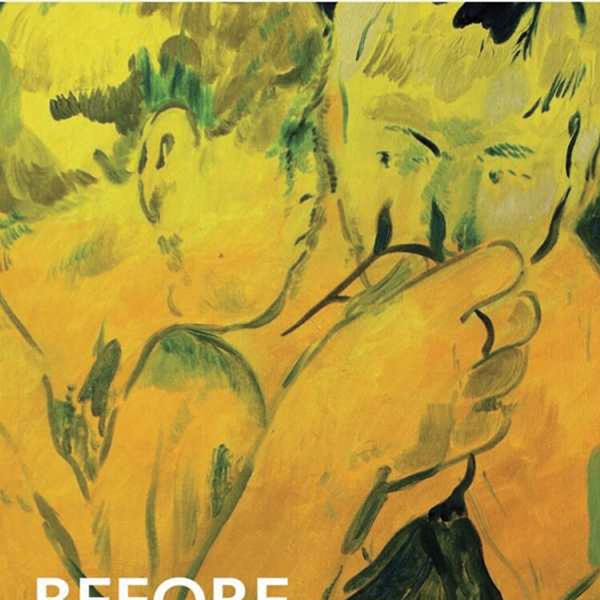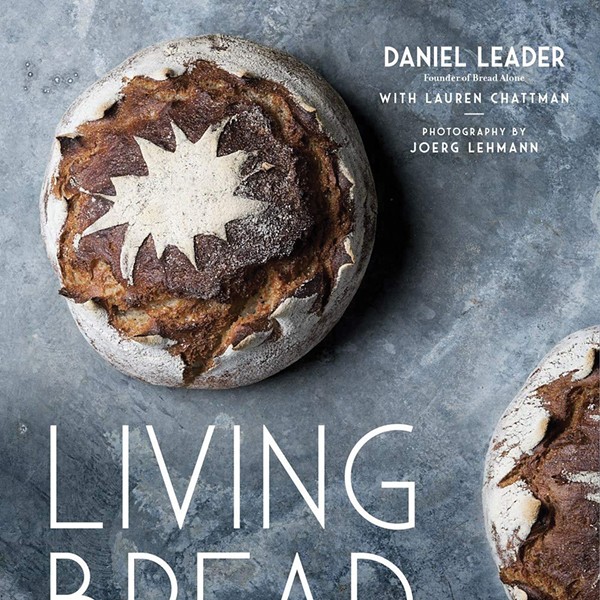Sunil Yapa is not sure what time zone he's in. The Woodstock-based novelist just returned from a book festival in Australia. On the first leg of the 20-hour flight, he watched two movies, took a nap, and woke up with five hours still to go. "There's a panic moment: get me off this plane! Then you realize it's over Fiji."
Yapa sits upstairs at Joshua's Cafe, drinking iced dirty chai and staring down a Super Falafel sandwich the size of a Buick, which sits untouched for nearly two hours as he discusses his breakout debut novel, Your Heart Is a Muscle the Size of a Fist (Little, Brown & Co., 2016).
Even jet-lagged, he's a high-octane talker: intense, eloquent, and impassioned. Your Heart is a street-level view of the WTO protests that rocked Seattle in 1999, following seven disparate characters: activists, cops, a Sri Lankan diplomat, and Victor, a biracial stoner who winds up across the barricades from his estranged father—the beleaguered chief of police—as the city melts down.
Though the novel pulses with you-are-there urgency, Yapa did not participate in the Battle of Seattle, but discussed the unfolding drama in a literature class taught by Amitava Kumar, who now teaches at Vassar. "As a person of color, I had issues with strategy of mass arrests," Yapa explains. Arrested at 17 for possession of marijuana, he spent a night in jail, an experience he had no wish to repeat. "In hindsight, I realized they had civil disobedience training in how to get arrested. It might have been an empowering experience."
Certainly writing about it has galvanized him. He'll hit six continents this year on book tour and other travel; if Antarctica had indie bookstores, he'd probably travel there too. This seems apt for a novel about globalization, written over six years in 17 different locations, from Manhattan to a beach hut in Chile and a wintry Greek island with more sheep than people.
Yapa grew up in State College, Pennsylvania, where his Sri Lankan-born father is an economic geography professor specializing in poverty studies. "I knew at nine that I wanted to be a writer, but I absorbed the idea that being an artist was self-involved," he explains. "My parents are a teacher and nurse—the idea of service was very big." Nevertheless, "reading and writing were beloved in my house. My mother has read more than anyone I know, except possibly me," Yapa says. "Libraries are my church."
A biracial National Merit scholar, he was offered free rides to several colleges, but turned them down, to his parents' horror. "My father's an immigrant; my mother is a nurse/anesthetistist, with three advanced degrees. It was the biggest deal in the world that I wasn't going to college." Finally he agreed to enroll, dropping out of two colleges before graduating from Penn State.
"My whole life has been a crooked road, interrupted," Yapa says. After college, he and a friend went to teach English in Changzhou, China. "Within a month I'd scrapped my plans to get a PhD. I decided I was a writer." He wrote sketches and short fiction, practicing descriptions of things like the smell of the river outside his apartment: "a bouquet of human shit, industrial run-off, and burning rubber."
They'd been hired for a year, but the SARS epidemic cut their stay short. With eight months suddenly free, they headed for Chile, where Yapa's step-grandfather offered his vacant apartment. "If American cultural norms don't support writing, Chilean norms do. He was so proud of me," Yapa says.
This launched a string of world travels. Back in the USA, the pair found a job selling posters on college campuses. For two months each year, they crisscrossed the country in an oversized truck, erecting pop-up shops; their bestselling poster was Bob Marley toking up. The company's top earners for six years running, they saved enough to fund ten-month road trips to Chile, Argentina, Guatemala, and India; Yapa wrote 500 pages of unpublished prose.
He enrolled at VONA/Voices, a summer workshop for writers of color founded by Junot Diaz. Workshop leader Chitra Divakaruni urged him to apply to the University of Houston, where she taught. He did, but dropped out again. Then he took another summer workshop at London Film School, Ellis Freeman's "Writers' Gym," which he calls "life-changing."
Yapa applied to the MFA program at Hunter College, where he studied with Colum McCann, Peter Carey, Claire Messud, and Nathan Englander. "These are your teachers; holy shit!" he exclaims. "They were working writers, at such a high level. They taught us on Monday, and Tuesday they went back to their own work. That made all the difference. That and their generosity."

















